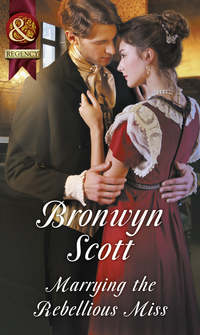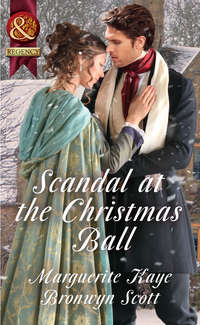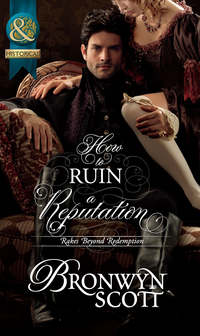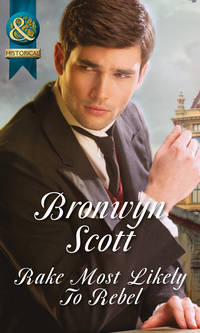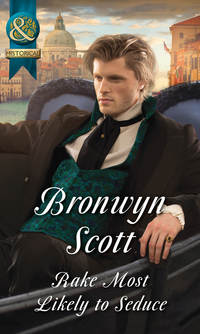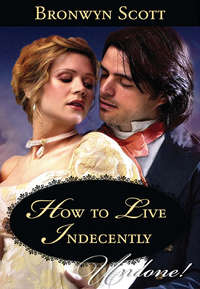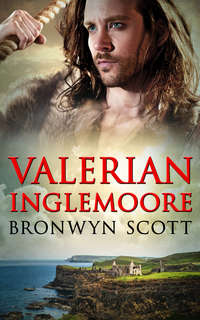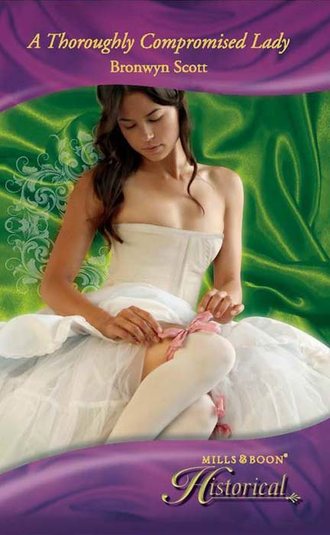
Полная версия
A Thoroughly Compromised Lady
Chapter Three
Jack Hanley, the first Viscount Wainsbridge for all of five years, always answered the king’s summons to Clarence House with alacrity and anxiety no matter what time of day or night it came or whose bed it found him in. Alacrity because one did not keep his monarch waiting, especially when one possessed a title as new as his. Anxiety because he knew the summons was merely a prelude to upheaval. William would not have called him if something had not been afoot that needed his special attentions. No doubt there’d been a development with the Venezuelans, but he was suspicious that it had occurred so quickly. He’d only met them an hour ago.
‘I need you to stop a war.’ William said abruptly as Jack entered. Jack merely nodded as if such statements were commonplace conversation and shut the door of the Clarence House study behind him. He had suspected as much. The initial rumours had been confirmed, then.
‘When, your Majesty?’ He took in the room with a sweeping glance, nodding curtly to the third man present, Viscount Gladstone from the Foreign Office.
William IV toyed idly with a paperweight. ‘The war hasn’t precisely happened yet. But I have it on good authority from Gladstone here that it will if we don’t take steps now.’
Ah, it was to be a pre-emptive action then. He was good at that. Jack took the liberty of pouring himself a brandy at the sideboard. He took a seat and expertly flipped up the tails of his evening wear, sliding a careful glance at Gladstone. He had personal reasons for not liking the man. Gladstone made no secret of his contempt for Jack’s inferior birth and first-generation title. But professionally, the man possessed an astonishing acumen for foreign intelligence.
‘Tell Wainsbridge what you’ve told me,’ William said.
Gladstone cleared his throat. ‘Venezuela is contesting its shared borders with British Guiana. They wish to extend their boundaries. It goes without saying that we are not interested in giving up our claims to that territory.’ Gladstone stood up and walked to a long table, gesturing for Jack to follow.
With a long finger, Gladstone traced the boundaries on a map spread before them. ‘The border in question is south-east of the Essequibo River.’
Jack nodded. He was one of the few who understood the magnitude of rivers in British Guiana. The marshy topography of British Guiana made coastal rivers the only thoroughfares into the interior. ‘This is no small contention. We’re dealing with approximately thirty-thousand square miles of property.’ In a land of marshes and rivers, such territory was worth squabbling over.
Jack looked up from the map, back to where William sat. This information was not new to him. Indeed, it had been at the root of his presence at the Fotheringay ball. What he didn’t know were the motives behind it. ‘Do we have any speculations as to why Venezuela is suddenly interested in this section of territory?’
For centuries, ever since Britain had first staked a claim to Guiana in the sixteen hundreds, Spain had not done more than establish a handful of missions along the border. The border had been undefined and peaceful. Of course, it was an independent Venezuela now, not Spain that shared the border. Perhaps after a little over ten years of independence, Venezuela was flexing its muscle in the region.
‘That’s where you come in, Wainsbridge.’ William leaned back in his chair, hands steepled.
‘Of course, anything, your Majesty. I am always at your service,’ Jack said easily, hiding his apprehension. He’d had to train himself over the last few years to stay alert in William’s presence. The man acted more like a retired naval officer—which he was—than royalty—which had been a far-fetched possibility once. It was easy to forget that the tall, white-haired man with a soft chin and friendly eyes commanded a nation. Being with the man felt almost ordinary, like being with a beloved uncle until one remembered that, unlike the uncle who could be refused, one could not refuse the king.
‘As you know, you’ve been asked to determine how real rumours of this border dispute are. I am interested in hearing how your evening went with the Venezuelan delegation.’
‘I met them, but just barely.’ Jack eyed Gladstone suspiciously. None of this was urgent or beyond what he already knew. Why the emergency summons?
Gladstone flicked a glance at William. ‘There’s been a further development. One of the gentlemen in the delegation is heavily influenced by a private and powerful consortium of Venezuelan businessmen who are eager to profit from the boundary dispute. We want to identify him as quickly as possible. It is believed the gentleman, whoever he is, may be in possession of a forged map that shows Venezuela’s “preferred” boundaries. He may try to pass it off as a legitimate document and use it as evidence to force a new treaty of limits.’
Jack immediately thought of Calisto Ortiz, his smooth manners and his ‘ombudsman’ attachment to the delegation—official but unofficial. Jack returned to his chair and sat back to give his report.
‘I think we can eliminate Adalberto Vargas. He’s the senior member, in his early fifties. From his manners tonight, he’s from a more traditional school of diplomacy. He’s not likely to be swayed by such risky and underhanded tactics like a forged map.
‘Neither would it be Hector Dias. He does not have either the suave mannerisms of Ortiz or the intellectual background of Vargas.’ Jack surmised Hector Dias was a man who’d no doubt begun his career in mid-level staff positions with various embassies and would likely end his career there as well. The cut and cloth of his clothes at the ball had certainly suggested as much. The man hadn’t the wealth at his disposal to match the wardrobes of Ortiz or Vargas.
‘So that leaves Calisto Ortiz,’ Gladstone put in, a note of triumph in his voice that it had been so easy to detect a likely candidate.
‘Yes. He’s the flamboyant charmer of the group. He’s also there as an ombudsman, so the rules he must follow are much more lax than the other two. His English is excellent, and his connections even more so. He’s a nephew to one of the regional Venezuelan viceroys with family connections to the governor. He’s a likely choice.’
‘We’ll start putting together a more detailed dossier on him now that we know what to look for,’ Gladstone said. ‘If he’s so well connected, British intelligence surely has information on his family. Perhaps he’s organising a plantation movement. Plantations are big business in that part of the world.’
‘Not that big,’ Jack scoffed at the theory. Gladstone scowled at him, the old antagonism between them rising.
‘I’d love to hear your ideas,’ Gladstone retorted.
Choosing to ignore the slight, Jack returned to the map and stared thoughtfully at the outlined area, an idea forming in his mind. Businessmen weren’t interested in the natural beauty of a land. There was something lucrative in the river valley, a valuable resource.
He spoke a single word to the room at large. ‘Gold.’
‘Gold?’ Gladstone replied, incredulous.
‘You forget, I’ve actually been to the region. I was there in 1830 after I helped Schomburgk on his Anegada expedition.’ Jack smoothly interjected his credentials into the conversation. His work there had laid the grounds for being awarded the viscountcy. ‘The river valleys are too wet and the forests in the interior are too dense for serious farming. Businessmen aren’t looking to put up a plantation community in this region. No profit.’ Gladstone looked like he’d gladly throttle him.
William broke in to defuse the tension. ‘We want to be certain in regards to what they’re after. We can use that knowledge to grease negotiations if we must. Until then, Wainsbridge, Ortiz is yours. I want to know what has made the area an urgent point of interest and how far they’re willing to go to get it.’
Dismissed, they took their leave of the monarch and made their way through Clarence House to the front door. Jack was glad he had his coach. He did not want to share a hackney with Gladstone. They stepped out into the night air.
Jack’s coach waited at the kerb but Gladstone couldn’t resist a final jab as Jack stepped up to the door. ‘I hear we have a mutual acquaintance in Lady Dulcinea Wycroft.’
‘You hear the most amazing things, Gladstone,’ Jack returned.
‘I see them too, sometimes,’ came Gladstone’s cryptic reply.
‘You’ve never got over Lady Dulcinea jilting you.’ Jack’s reply was cool, but inside he was seething. Gladstone must have had men watching the ballroom that night, checking out the Venezuelan delegation on his own even though Jack had been given the job. He would not put it past Gladstone to have forced a meeting tonight simply to drag him away from Dulci.
Anger clouded Gladstone’s face. ‘Behind those clothes you’re nothing but a scrapper, a no-account country squire’s son. I can only imagine how many boots you had to lick to rise this far.’
‘Whereas I am sure you’re quite clear on the boots you’ve had to lick. No imagining there. Your family’s been currying favour since the sixteen hundreds. Dirty business that, two centuries of boot-licking.’ Jack stepped into his coach and held the door open for a moment. ‘Goodnight, Gladstone.’
He slammed the coach door and sank back against the squabs, less sanguine than he’d let on. This was dicey business with the Venezuelan delegation. Negotiations of this nature were always very covert, hardly ever making the public news, but that didn’t make them less dangerous. Usually, they were more so. Without the check and balance of being in the public eye, there were no rules to govern them. Still, it would be business as usual if Dulci wasn’t involved. But she was—placed right at the centre of the storm because of her connection to the three men most intrinsically concerned. There was going to be trouble. He could feel it in his bones.
Dulci Wycroft firmly believed trouble found you when you least expected it. She had an antidote for that: she expected trouble.
Always.
She’d learned early that collecting artefacts wasn’t exactly an old maid’s safe hobby. Not that she thought of herself as an old maid, although she’d reached the august age of twenty-six, trailing a string of six refusals of marriage behind her. Nor was she looking for safe.
If she was, she wouldn’t be here, or a lot of the other places she’d been. Her hand flexed and closed around the small gun in her pocket, her sharp eyes alert to any suspicious movements in the dim interior of the dockside warehouse. Warehouses in the dock districts were not foreign venues to her. But this one, set in a rough part of Southwark, was by far the worst.
She’d been glad she’d decided to bring her own unmarked coach instead of relying on public hansom cabs. She’d noticed that the deeper into the area she’d journeyed the presence of cabs had dried up, a sure testimony to the unsavoury nature of the environs, the noise and comparable respectability of Hays Wharf far behind them.
A man moved from the shadows. Dulci tensed and then relaxed. She might not completely trust this man, but she knew him. He was her reason for being here in these rather questionable surroundings.
He strode forwards, well-dressed and olive skinned. ‘Señorita, buenos días!’ he effused, lavishly bowing over her hand, too lavishly. Sweat lightly beaded his upper lip and Dulci noted immediately that the lavish gesture was a mask for the man’s anxiety. The usual self-confidence the man possessed seemed oddly absent today.
Dulci withdrew her hand as soon as it was politely possible, her tones haughty and clipped. ‘Señor Vasquez, let us dispense with the pleasantries. What do you have for me that is so urgent it could not wait out the afternoon?’ Señor Vasquez’s note had ruled out the chance to catch the Royal Geographic Society’s lecture on the West Indies in its entirety, but with luck she might still make the last part.
‘I have artefacts from the Americas.’ He gestured towards an opened crate, but Dulci didn’t miss the quick dart of his eyes.
‘Are you expecting anyone else, señor?’ Dulci asked keenly, her own eyes conducting a quick investigation of the warehouse too.
‘I have many appointments, señorita. I merely wish you to see these items privately. They’re from Venezuela, your latest area of interest.’
‘Really?’ Dulci replied coolly, raising her eyebrows a fraction of an inch to indicate only mild appreciation. A display of unabashed delight would only serve to increase Señor Vasquez’s price.
Dulci reached into the crate with one hand, parting the straw packing with one gloved hand. The other hand cautiously remained in her pocket, her eyes unwaveringly fixed on Señor Vasquez. Her hand met with stone and she pulled out a carved statue. Vasquez did indeed know her interests well.
‘It’s a zemi.’ Dulci fought hard to keep the rising excitement out of her voice, studying the object reverently in the poor light. The idol was devoid of any garments and the stone carving indicated breasts and a rounded belly. ‘It’s an idol of a native god, or goddess in this case. Unless I am completely mistaken, this is a fertility fetish.’ She stared at him in stark contemplation, oblivious to his discomfort at such frank discussion. ‘Did this come with a—?’
‘A bowl?’ Vasquez finished for her. ‘But of course, señorita.’ His eyes flashed with a mocking chagrin. ‘I would not give you only part of a set.’
Dulci set down the carving and with both hands delved beneath the straw packing. She felt the shallow dip of a bowl. ‘Yes, there it is.’ She withdrew a stone bowl and set it in place. ‘There, Señor Vasquez, you can see how it all goes together. The idols are flat headed so that a stone bowl can be placed on top of their heads for worship.’
‘Buena, señorita. Name a price, and it shall be yours.’
He seemed far too eager to get rid of her after the demanding note requiring an immediate meeting.
‘I would prefer to see the rest of the contents,’ Dulci said, proceeding to empty the crate and offering an exposition on each piece she extracted. ‘This is likely to be an amulet, this would be a metate, they used it for grinding seeds…’ She spoke absently, more to herself than for the edification of Señor Vasquez.
Dulci dusted off her hands and surveyed the artefacts, seven in all. She was cognisant of the fact that Señor Vasquez had checked his watch twice while she’d unloaded the crate. He was clearly expecting someone else, or perhaps hoping to avoid the expected visitor. The collection was certainly splendid, but, while it was exciting to her, she had not forgot the urgency of Vasquez’s summons. ‘Is this everything?’
‘All but this final item.’ Vasquez handed her a worn leather book the size of a journal.
She eyed him speculatively. ‘Saving the best for last?’
Vasquez placed a hand over his heart. ‘I seek only to please you, señorita. I know how much you like to read. Look here, there’s even a few maps, very detailed.’
Dulci thumbed the pages, noting the drawings of strange plants and places. ‘An explorer’s journal? Perhaps a missionary’s log?’ Dulci asked. It was written in English and she immediately thought of Jack. The journal would make a fine gift for him, a remembrance of his own work in that region a few years back. Not that he deserved such a gift after last night, she reminded herself.
‘I can only guess, señorita. My English is not good enough for reading,’ Vasquez hedged. ‘I am a mere importer.’
Dulci was instantly suspicious. There was nothing ‘mere’ about Vasquez. The Spaniard was rich, his wealth made from the lucre of Spanish interests in South America. ‘How did you come by this book?’
Vasquez shrugged gallantly. ‘It was in the same crate as the statue. It was on the last ship. I unpacked it and thought of you, that is all.’
Nothing was ever that straightforward. When it was, it was time to start asking the hard questions. ‘Are the artefacts stolen?’ Dulci cocked her head to one side in an assessing tilt. She’d done business with Vasquez before. He’d proven to be a reliable contact, visiting London twice a year from Spain. Still, something didn’t seem quite right.
‘Of course not, I am a legitimate importer. Such chicanery would damage my reputation,’ Vasquez argued, putting on an offended air at the suggestion.
‘If they’re not stolen, then why the urgency? We had an appointment tomorrow morning. What difference can a day make?’
‘Ah, yes, señorita, please forgive me for worrying you. I must leave for home on the morning tide instead of leaving later in the week as I had planned. It is a personal matter. I did not want to leave without meeting with you.’ He lowered his voice conspiratorially. ‘There are others who were interested in the artefacts. I am to meet with them tonight. But I confess I wanted you to have first pick.’
Dulci nodded, her concern ebbing slightly in the wake of his explanation. The man was a consummate salesman. No doubt he’d arranged all this to increase his price. Urgency was a well-proven ploy for adding spice to a negotiation. ‘I’ll pay one hundred pounds for the crate and the journal.’
‘One hundred pounds? Madre de dios, but I could not part with them for such a sum.’ He protested neatly. ‘Surely you understand, señorita, the effort to transport such goods across the Atlantic and bring them to London?’
Dulci’s tone was brisk. ‘Surely you understand, I am in no mood to haggle like a fishwife in the market. I am late for a much-anticipated lecture and you are fully cognisant of the fairness of my price.’
‘Because you are my favourite, I will indulge you.’ Vasquez relented with an exaggerated shrug. ‘A hundred pounds, señorita.’
Dulci gave a curt nod. ‘Deliver the crate to my town house promptly and you’ll receive instructions for payment. If you are quick, you’ll have no trouble getting your money before you sail. As always, señor, it is a pleasure.’
Vasquez bent over her hand. ‘The pleasure is most assuredly mine.’
The pretty señorita had barely exited the building before he began rapidly packing up the artefacts. The sooner this crate was out of his hands, the better. He had not told her any lies: the artefacts were not stolen and he did have an urgent personal need to sail tomorrow—he valued his health. Having those artefacts found in his possession would endanger that health greatly.
It had recently come to his notice through his vast networks that someone highly placed in the Venezuelan government wanted them in deadly earnest. The artefacts didn’t look particularly dangerous or valuable, just stone and wood carvings, most of them done with a crude skill at best.
It didn’t matter. They could have been jewel studded and he’d still have wanted to be rid of them. Originally, he’d thought to make a tidy profit on them, but whoever wanted them had not wanted to purchase them. There’d been no interest in a business transaction. Whatever the reason, these items had not been meant to be seen by
others. The possessor of these artefacts, for reasons he could not ascertain, was as good as dead. The artefacts were out of his hands now. He was safe. He’d been careful to erase any mention of them in his ship’s manifesto and if his London warehouse was searched, they would find nothing that traced the artefacts back to him. He didn’t worry overmuch about the artefacts being discovered in the eccentric Señorita Wycroft’s possession. If the artefacts couldn’t be traced to him, they couldn’t be traced to her. He supposed it was entirely possible the objects could be found through other avenues, but that would be a random happenstance completely out of his control. In all probability, the artefacts and whatever they hid would fall into obscurity, displayed inside a nice glass curio case in the señorita’s town house. His ethical conscience, such as it was, was clear. Señor Vasquez closed the lid on the crate and breathed a much-desired sigh of relief.
Chapter Four
Calisto Ortiz aimed a frustrated kick at an empty packing crate and swore in a fluid torrent of Spanish for all to hear. There was inept and then there was outright incompetence. His men had bungled the job again. How hard was it to retrieve a map no one knew existed? Yet his men had failed to recover it in Venezuela after the map-maker had mistakenly packed it with his other archaeological finds for shipping back to Spain. Here in London, the map had slipped from their grasp a second time. After having tracked it to an importer named Vasquez, Ortiz had thought his work was nearly done. He simply had to run Vasquez to ground and claim the map. But he was too late. The warehouse was deserted, but only freshly so. The crates were empty and bore the markings of Spanish freight. They also looked new, lacking the dirt and gouges that often accompanied crates over time.
Calisto Ortiz barked out new orders to his men. ‘Search the docks, maybe the ship hasn’t sailed yet. Search the taverns and inns for Vasquez too.’
The men rushed to do his bidding, leaving him alone in the warehouse. Calisto upended a crate and sat down upon it, heaving a sigh. He cared less about finding the ship than he did about finding Vasquez. Vasquez was fast becoming a valuable link in this game for two reasons. The first reason was of a practical nature. If he didn’t find Vasquez and hence the map, it would mean the map was loose in London. The search would take on a needle-in-the-haystack quality.
The second reason was more symbolic. Vasquez was moving fast. By all reports the ship had only been in London a short time ahead of his own arrival and now it was potentially gone, the warehouse cleared out. Vasquez knew he had something dangerous and he’d come to London to pass it on to someone, to unburden himself. It meant the map was no longer a well-guarded secret. The mission had now taken on two goals: retrieve the map and silence those who knew about it.
Ortiz ran his hands through his dark hair, breathing deeply to calm his racing mind. He had to take one step at a time, one assumption at a time. Until he found Vasquez, he had no way of knowing if Vasquez understood the value of the map. It could be that Vasquez only knew he had something of dubious worth, but didn’t know what it was. Along with the map, there were figurines, zemis and metates. Then of course, he’d have to hunt down whomever Vasquez had sold the items to.
He had to be prepared for best- and worst-case scenarios, the best being that the map had passed from hand to hand without anyone detecting its importance. The worst was that Vasquez did know the significance of the map and had sold it for a nice profit to someone who’d appreciate the map’s value in the discussions that would soon open up between the Venezuelan delegation and the British government in regards to the questionable border Venezuela shared with British Guiana.
Calisto knew he played a dangerous double game, not only with the British but with the Venezuelan government as well—not that the latter would mind if they came out the victor. Some would claim the map was a forgery, but Calisto preferred to think of the map merely as potentially biased. He wouldn’t be the first person in history to sponsor a map-maker to tweak the boundaries a bit here and there. In all reality, the interior of British Guiana was so underexplored, who could say where the borders really were?
It would take years to disprove the boundaries on his map and ownership was nine-tenths of the law, as the saying went. In the meanwhile, Venezuela would be in possession of a very lucrative piece of land containing riches untold and he and his uncle would be wealthy men.
Everything would work out. He was a man who knew how to cover his tracks and follow all necessary leads. His men were hunting down Vasquez right now. There was nothing more he could do at the moment. He flipped open his pocket watch. He had just enough time to change and dine before the Danby rout. With luck, the delectable Lady Dulcinea would be in attendance without her surly polyglot friend.



